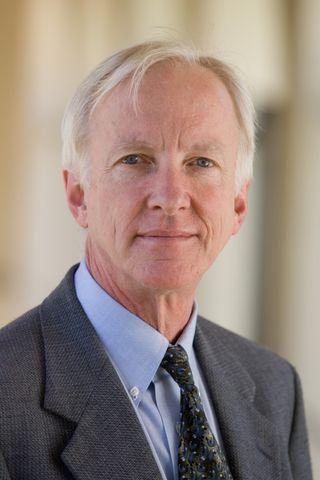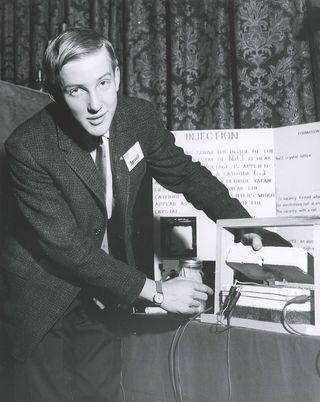Society Alumni Address Newest Class of Intel STS Finalists
Each year at the Intel Science Talent Search, alumni of the program are invited to speak to the most recent group of finalists. This year’s keynote speaker was Robert “Bob” Sproull, who recently retired as Vice President and Director of Oracle Labs, an applied research group that originated at Sun Microsystems. Sproull currently serves as Chair of the U.S. National Academies Computer Science and Telecommunications Board and as an adjunct professor of Computer Science at UMass.
Content below adapted from remarks given at the March 8, 2013 Intel STS Alumni Dinner.

Sproull’s interest in science was first piqued by his father, a physics faculty member, who frequently left gears sitting around the house. Sproull built an electromagnet at 7, and later in childhood experimented with transistors, which were becoming more readily available. His Science Talent Search project in 1964, which won him the top prize, was Physical Properties of Electrolytically Injected F Centers in Sodium Chloride. He described it as a visually appealing project that involved heating sodium chloride to make it appear red.
Sproull changed his focus from physics to electrical engineering after a group of his friends decided to take a new class that was being offered only by permission of the instructor. The instructor was Ivan Sunderland, later known as the “father of computer graphics.” The classroom held the personal computer of the day, which took up half the room, and Sproull built on his history building transistor radios to help him figure out how computers worked. While he had to have his first computer program written for him, he went on to co-author the first textbook on interactive graphics. He says, “It was luck that I ended up in that class, but my mind was ready.”

Throughout his career, Sproull’s policy has been to favor places where he could learn new things from new people. He discussed how he had been lucky to work with the top people in his field and encouraged the finalists to seek out locations where people were working on things they wanted to learn more about. Sproull congratulated the 40 finalists on their passion and commitment to STEM, saying they were a “rarefied group commencing on careers in science and technology” and that despite this tension-filled week of competition, they should remember that competitors turn into colleagues, which are vitally important to gather throughout your career.
Sproull also emphasized the importance of teaching- including teaching the public about science and technology in a way they can understand, teaching reviewers and supervisors about ideas, and teaching product development groups. He went on to say that as students, he was sure the finalists “have learning in the bag, but can be better teachers” and discussed the challenge of teaching without solely telling someone what to do and being inspiring about your passion, rather than annoying. Sproull closed by saying, “Kick butt and have fun. Teach, and you’ll change the world.”
In addition to Sproull, finalists heard from Grant Stokes (STS 1977), who presented them with the “biggest real estate you will ever own,” as each student received information about a minor planet named in their honor. Stokes is head of the Aerospace Division at MIT Lincoln Laboratory and directs the Lincoln Near-Earth Asteroid Research Program.


